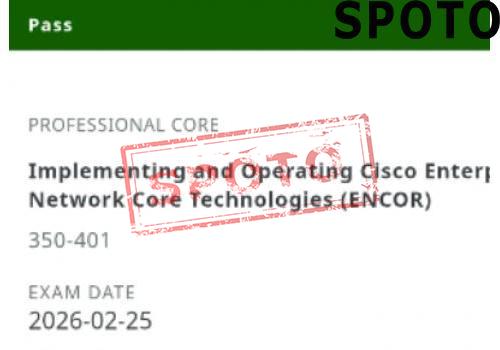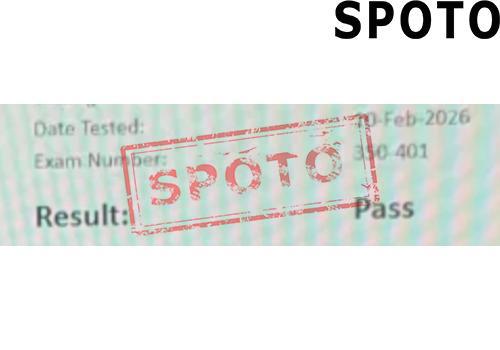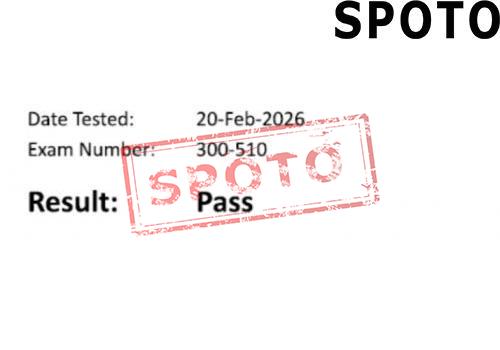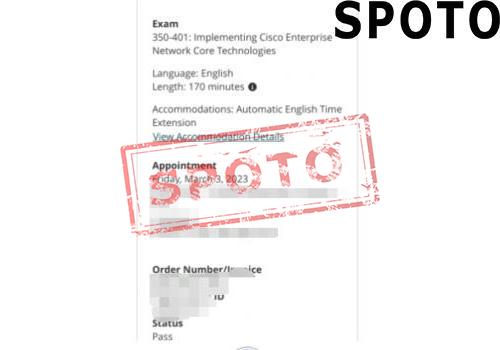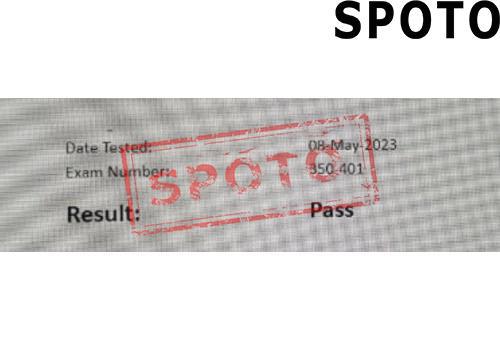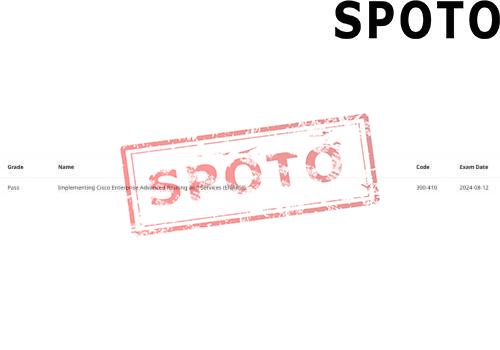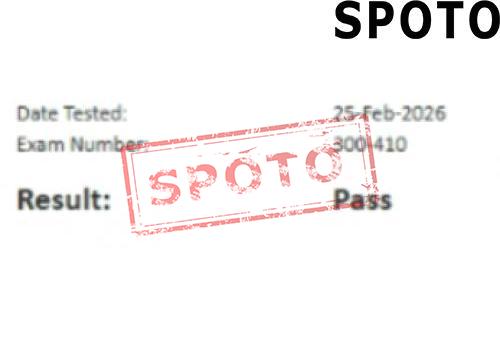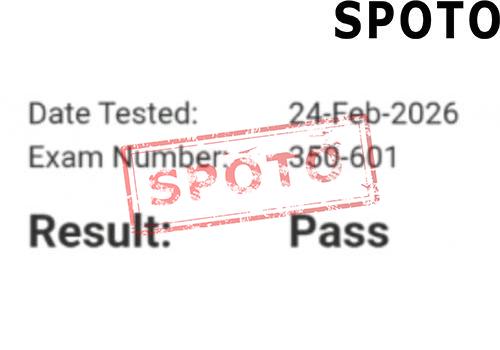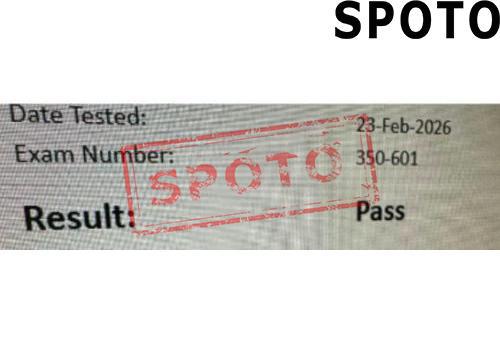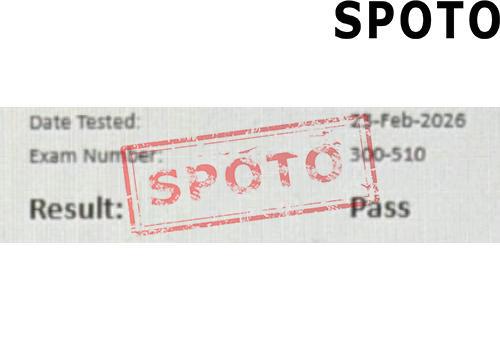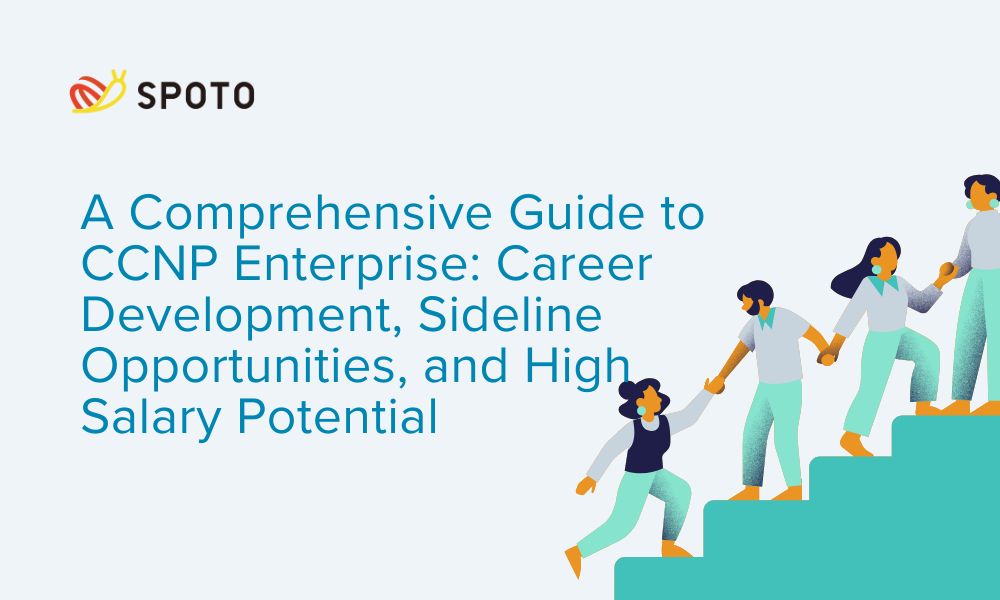
Table of Contents
1. What is the CCNP Enterprise certification?
CCNP, short for Cisco Certified Network Professional, is a professional-level certification offered by Cisco Systems. CCNP Enterprise is an advanced professional-level certification within the Cisco certification program, focusing on enterprise-class network architecture and operations. This certification is designed to develop and validate network professionals' skills in designing, implementing, managing, and maintaining complex enterprise-class network solutions.
2. What certifications can CCNP Enterprise certification holders pursue?
- Online Consulting/Consulting: Freelance consultants earn approximately $50 to $150 per hour (approximately 350 to 1050 RMB), depending on region and experience, while project-based consulting income can range from several thousand to tens of thousands of dollars.
- Online Training/Online Course Instructor: Online course platforms (such as Udemy, Bilibili, and Zhihu Live) charge commissions based on course sales or course duration. Corporate training instructors can be billed on a daily basis, around $200 to $500 (1,400 to 3,500 RMB) per day. Freelance network equipment configuration/maintenance: $30 to $100 (210 to 700 RMB) per hour.
- IT outsourcing/remote technical support: Monthly fees range from around $500 to $2,000 (3,500 to 14,000 RMB), depending on the size of the network and the type of services provided.
- Online content creation and self-publishing: Initial costs may be low (a few hundred to a few thousand RMB per month), but after building a significant following, it can become a stable side hustle.
Case Study: Boosting Supplemental Income with CCNP Certification
A network engineer with CCNP Enterprise and Security certifications shared his side hustle experiences on Reddit. He stated, "I worked as a network engineer for a fully managed service provider (MSP)... During the day, I was responsible for comprehensive support for the customer environment and performed upgrades after hours... My 'consulting' fee was a fixed $40 per session." He primarily helped with installations and troubleshooting, working on an hourly basis. A standard rate of around $40 is ideal for network engineers who need flexibility in their schedules outside of their primary duties.
Another user, a former CCNP-certified IT professional, now provides network support services to small and medium-sized businesses. He shared, "I consult after work and on weekends... I typically work with small businesses... My hourly rate is half what a local managed service provider (MSP) charges... I don't usually work on their servers..." By providing common network services such as VLANs, wireless networking, routing, switching, and VPNs to local small businesses, charging half or hourly rates, he earns at least $3,000 in additional income each month.
3. Benefits of Obtaining a CCNP Certification
CCNP is an industry-recognized, fast-track certification and a global benchmark for networking expertise. Holding this certification demonstrates your ability to design and implement complex networks, effectively troubleshoot, and maintain scalable infrastructure in enterprise environments. For employers, it's a reliable indicator of competence and reliability, minimizing the risk of losing certifications to competitors. Furthermore, as technology evolves, the CCNP curriculum reflects emerging trends to stay ahead of the curve, including network automation and portability, cloud-native networking, and emerging technologies. Earning this certification ensures your skills stay current and meet industry innovations. CCNP-certified professionals are equipped to handle a variety of environments, offering unparalleled flexibility in career choices. CCNP certifications are particularly popular in industries such as healthcare, finance, and education. Whether you're looking for a full-time or part-time job, it offers an advantage. With a CCNP certification, you can find part-time work such as freelance network engineering, online technical instructor, IT content creator, or remote technical support.
4. How to Prepare for the CCNP Exam
First, learn from Cisco certified professionals. They have the experience, expertise, and skills to help you pass the exam. SPOTO experts offer in-depth advice on content and training methods. They understand how to create a study plan and cover all topics step-by-step. Second, gain the necessary practical experience. If you've taken other Cisco certification exams, you know that without practical experience, you can't pass any Cisco exam. Before taking the CCNP Enterprise exam, accumulate one to three years of practical experience to familiarize yourself with all Cisco CCNP security devices. You'll need an average of four to five hours of practice per day to familiarize yourself with the exam concepts and content layout. Furthermore, to best prepare for the CCNP Enterprise exam, studying one topic at a time is a good approach. Don't read a book all at once; it's best to study one topic at a time. Read, understand, and then practice. Then move on to the next topic. Continue studying and practicing until you understand. Finally, seek out additional exam resources. Books from Cisco Press are undoubtedly the best resources for any Cisco exam. However, these may not be enough, so we recommend SPOTO, which provides a wealth of exam materials to help you improve your preparation efficiency and pass rate.
Case Study: A Low-Education Network Engineer Successfully Finds a Job After Obtaining CCNP Certification
Before obtaining CCNP certification, he had already found that he had not been successful in his job for several months, so he used his free time to prepare for the CCNP exam. He shared his exam method:
(1) Daily study: Read two books, quickly skimming the first time and reading carefully the second time until he could recall the general content of each chapter.
(2) Experiment: Although I had equipment, I still completed all the flash experiments (three). I printed the experimental materials and spent half an hour on the car to the exam. I basically did not make any big mistakes in the experiment.
(3) Question bank: I usually skimmed the first time. Because my English was not good, I mainly relied on memorizing words in the first time. I did the second time by myself, wrote the answers in a notebook, and copied the wrong questions and controversial questions. I reviewed the copied questions again for the third time. The experimental questions were excluded. At that time, it was an old version of the exam, which had experimental questions. The question bank was provided by SPOTO registration customer service, and the accuracy was very high. In addition, VOIP and VPN are very important. The IPTV and storage I use now are also very important, as well as Sun's Solaris system. If you have the opportunity, learn more about VOIP, VPN, and MPLS.
5. Is the CCNP certification worth it?
In the ever-evolving world of networking, the Cisco Certified Network Professional (CCNP) is one of the most coveted certifications for IT professionals. Whether you're looking for career advancement or technical expertise, the CCNP will open countless doors to opportunities. This certification validates your knowledge in areas such as routing, switching, security, and wireless networking, making you a valuable addition to any organization. Salaries also increase significantly as your career advances. IT professionals with CCNP certifications typically earn higher salaries than those with entry-level certifications like CCNA. According to industry surveys, the average annual salary for CCNP-certified network engineers ranges from $80,000 to $120,000, depending on location, experience, and position. The economic benefits of obtaining a CCNP certification are significant, especially considering the time and effort required. If you want to boost your earning potential, the CCNP is an excellent investment.
Case Study: The Path to Certification Preparation in Purchasing
Jack is a 41-year-old purchasing manager. He has 13 years of extensive work experience, spanning strategic sourcing, procurement consulting, e-procurement, commercial negotiations, stakeholder management, supplier relations, expatriate management, and procurement and sales functions across various industries, including shipping, finance, and retail.
He shared his study experience: He dedicated 5-6 hours daily to studying. He started with SPOTO's official question bank and certification syllabus, repeatedly studying to build a solid foundation.
Practice exams were also crucial. They helped him assess the gaps between his actual preparation and his goals, helping him focus on specific improvement opportunities and strengthen his confidence in his strengths.
He also emphasized the importance of completing the full four-hour exam to better understand the atmosphere of the actual exam. Practice exams should be taken at least 7-10 days before the exam date. Before taking the exam, I completed all the practice exams provided by SPOTO, covering every topic in the syllabus.
